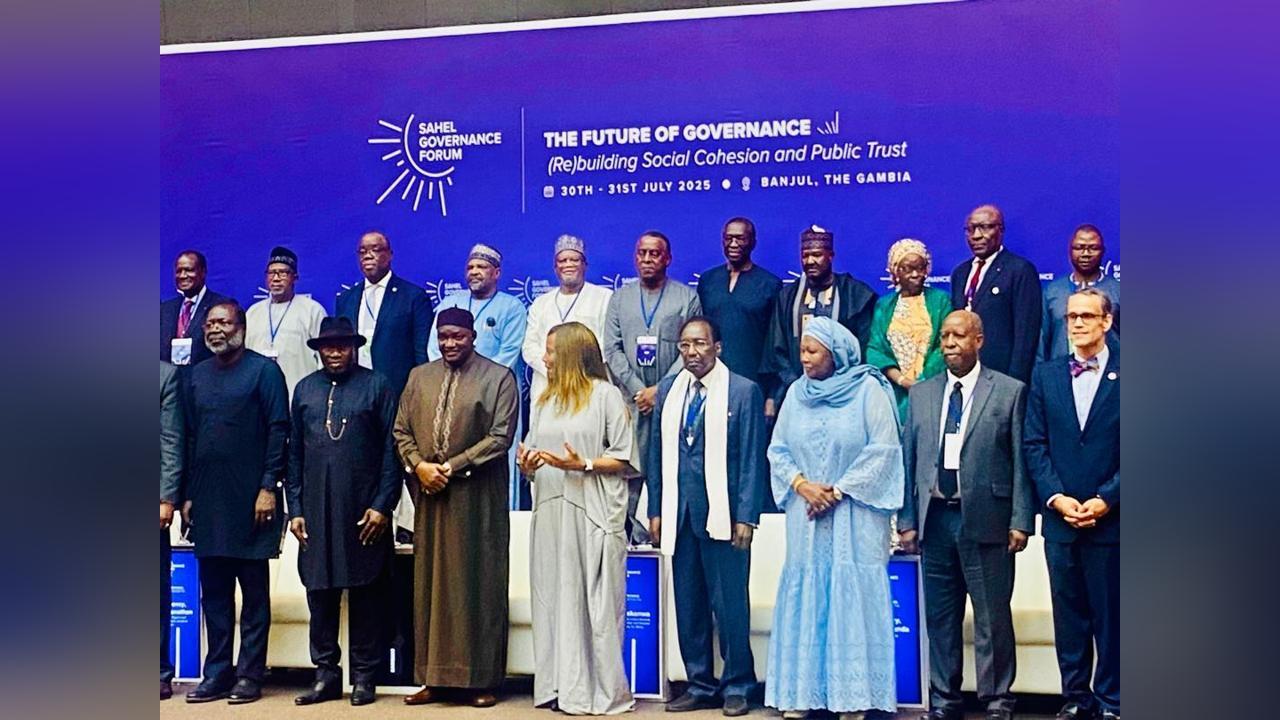Africa-Press – Gambia. The 2025 Sahel Governance Forum on Wednesday opened in Banjul, The Gambia with high-level calls for governments, civil society, and citizens across the region to jointly confront governance challenges and rebuild public trust.
Held under the theme “The Future of Governance: (Re)building Social Cohesion and Public Trust,” the two-day forum brings together political leaders, international experts, development partners, and civil society actors from across West Africa and the Sahel to chart a new path for democratic governance in a region plagued by insecurity and institutional decline.
In her official opening statement, Fatou Kinneh, Permanent Secretary at the Ministry of Foreign Affairs, International Cooperation and Gambians Abroad, welcomed delegates and reaffirmed The Gambia’s commitment to democratic renewal.
In his keynote address, President Adama Barrow of The Gambia called on Sahel governments to deepen citizen engagement, ensure justice, and invest in inclusive development. “The greatest threat to peace and stability is not just poverty or conflict it is the growing gap between the people and the institutions meant to serve them,” President Barrow said. He urged leaders to prioritize dialogue, fairness, and trust-building as core governance values.
UN Resident Coordinator in The Gambia, Mr. Karl Frédérick Paul, described the forum as a timely and necessary intervention. “The Sahel is facing a governance crisis. Public trust has eroded, and institutions are under pressure. But governments alone cannot solve this. Rebuilding governance must be inclusive women, youth, faith leaders and communities all have a role to play,” he stated.
The Special Representative of the UN Secretary-General for West Africa and the Sahel, Mr. Leonardo Santos Simão, warned that fragmented governance approaches have failed the region. “We must move away from siloed responses and adopt a shared regional vision of governance that promotes accountability, security, and justice,” he said.
Dr. Roba D. Sharamo, Director of UNDP’s Regional Programme for Africa, emphasized that governance in the Sahel must be both people-centred and adaptive. “Citizens no longer tolerate distant institutions. They demand results. The challenge before us is not just about designing policies, but about restoring confidence that democracy can deliver.”
Ahunna Eziakonwa, UN Assistant Secretary-General and UNDP Regional Director for Africa, underscored the need for bold reforms. “The reality is that mistrust is growing across our societies. Leaders must rise to this moment. It’s time to rethink governance not as control, but as care for citizens, for institutions, and for the future.”
The forum, hosted by the Government of The Gambia and convened by the United Nations Development Programme (UNDP), International IDEA, and partners, seeks to produce a regional governance agenda that can tackle entrenched inequality, weak state institutions, and growing insecurity.
Panel sessions throughout the event are examining topics such as democratic backsliding, the role of traditional and religious authorities, constitutional transitions, and how to rebuild civic trust after conflict and coups.
Delegates include former heads of state, parliamentarians, regional organizations, academia, and grassroots advocates. Many speakers echoed a common refrain that governance reform must be driven from within the region and rooted in local contexts.
As the forum continues into its second day, participants are expected to adopt key recommendations for a governance compact that places citizens at the centre of decision-making.
Mr. Paul closed his welcome remarks with a hopeful message: “If we act together with honesty, humility, and a shared sense of duty we can build the Sahel’s future on a foundation of trust.”
The Sahel Governance Forum will continue on Thursday, with discussions focused on transitional governance frameworks, regional coordination, and innovative models for public service delivery.
For More News And Analysis About Gambia Follow Africa-Press






